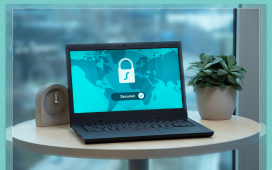Professional Development
Call for Speakers Open for Tech Tactics in Education: Data and IT Security in the New Now
Coming to Orlando, FL, Nov. 7-9, 2023, the new conference from Campus Technology and THE Journal will focus on cybersecurity and data practices across K–20 education.
The call for speakers is now open for 2023 Tech Tactics in Education, a brand-new conference from Campus Technology and THE Journal, taking place Nov. 7-9, 2023, in Orlando, FL. In line with the event theme, “Data and IT Security in the New Now,” the conference will offer hands-on learning, practical tips, and strategic discussions on critical cybersecurity issues and key data infrastructure and practices across K–12 and higher education.
Prospective speakers are invited to submit proposals for a variety of in-depth and interactive sessions, including panel discussions, tutorial workshops, campus perspectives, and posters. Sessions should address current and emerging technology, data, and security trends impacting education institutions and provide models for implementation, best practices, and strategies for effective technology leadership. Of particular interest are presenters who can provide hands-on exercises or concrete takeaways that attendees can utilize to fine-tune cybersecurity and data practices at their home institutions. Proposals are due April 3, 2023.
The conference program will feature concurrent sessions in four tracks:
Leading the Way in K-12 InfoSec
K–12 schools and districts have proved attractive targets for ransomware, malware, phishing, and other types of security breaches. For this track, we’re presenting information that IT leaders can use to help defend their institutions or help them recover after the worst comes to pass. We’re looking for best practices, case studies, lessons learned, tips and tutorials to avoid or recover from disaster, trends and predictions in the area of data/network security.
- Potential topics include: ransomware, network security, student and staff privacy, security operations, strategic cybersecurity planning, leadership in information security for schools, IT security funding/budgeting, identity management, zero trust, cloud security, phishing, cybersecurity awareness, cyber liability insurance, securing remote work/learning environments, risk management, disaster recovery, training staff, or a combination of any of these
Cybersecurity in Higher Education: Staying Ahead of the Storm
Cybersecurity attacks targeting the education sector continue to increase in number and complexity. This track will offer strategies, tactics and lessons learned from the trenches to help IT leaders navigate the security landscape and prepare their institutions for current and future threats.
- Potential topics include: Incident response planning, ransomware, network/data security, privacy, security operations, threat detection, IT security strategy, IT security leadership, IT security funding/budgeting, identity and access management, zero trust, cloud security, phishing, cybersecurity awareness, cyber liability insurance, securing remote work/learning environments, risk management, disaster recovery
Transforming K-12 Learning with Data
K–12 schools and districts collect a wealth of data on students, but educators are not always able to make use of it to the extent that it could have a quantitative impact on student achievement and other outcomes. This track will focus on best practices for approaching student data to create improvements in student outcomes, assist educators in their jobs, avoid pitfalls, and ensure the data is secure.
- Potential topics include: using data to differentiate instruction, data privacy, learning analytics, data literacy best practices, data privacy, cultivating a data-use mindset, process improvements for the use of data, data-informed decision-making, setting goals and identifying metrics, training educators on the use of data
The Data Revolution in Higher Education
It’s hard to overstate the importance of data across the institution. According to Educause’s 2022 Horizon Report Data & Analytics edition, institutions are increasingly being asked to support decisions with data — but existing data infrastructures are outdated and disorganized, and many colleges and universities still struggle to implement data governance systems. In this track, practitioners will share how they are revamping their approach to data across campus to enable data-informed decision-making and support the institutional mission.
- Potential topics include: Data-informed decision-making, data governance, data privacy and transparency, data analytics, learning analytics, retention & student success, artificial intelligence, data management, data integration, culture change, data literacy
Presentation types include:
- Panel Discussion. Panel discussions feature a moderator and at least two panelists speaking conversationally about an important topic or issue in the education community. Panelists must be secured before submitting a proposal. Seating is configured in theater style.
- Tutorial Workshop. Tutorial sessions provide a hands-on workshop led by an education practitioner where attendees can engage in brainstorming, problem-solving exercises, and other activities that directly relate to their institution’s technology needs. Tutorial sessions are 1 hour and 50 minutes in length. Seating is configured in classroom style.
- Campus Perspective. In Campus Perspective sessions, an individual or team presents first-hand experience with a technology project or expertise on a particular topic. Seating is configured in theater style.
- Poster Session. Poster presentations feature a poster display of innovative technology projects or research, often including graphics and photos, that will be posted on a bulletin board in a designated poster session area. Presenters must be present with their poster for the duration of the poster session (1 hour), allowing attendees to talk one-on-one, ask questions, and get detailed information on best practices and lessons learned.
Presenters should be higher education and K-12 IT leaders and practitioners, independent consultants, association or nonprofit organization leaders, and others in the field of technology in education. Industry experts will be considered for non-promotional presentations only. Submissions will be evaluated for relevance to the education field, clarity of title and abstract, usefulness to attendees, and coverage of current issues and trends. Speakers chosen to present at the 2023 Tech Tactics in Education conference will receive free event registration. Speakers are responsible for their own hotel accommodations, travel costs, and incidentals.
Visit the full call for speakers here. More information is available at campustechnology.com/techtactics.
About the Author
About the author: Rhea Kelly is editor in chief for Campus Technology. She can be reached at [email protected].










